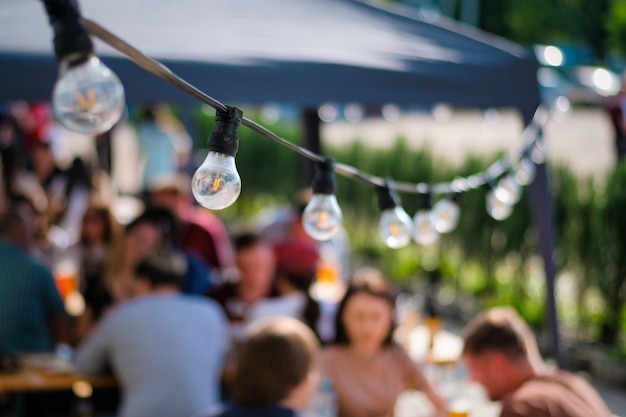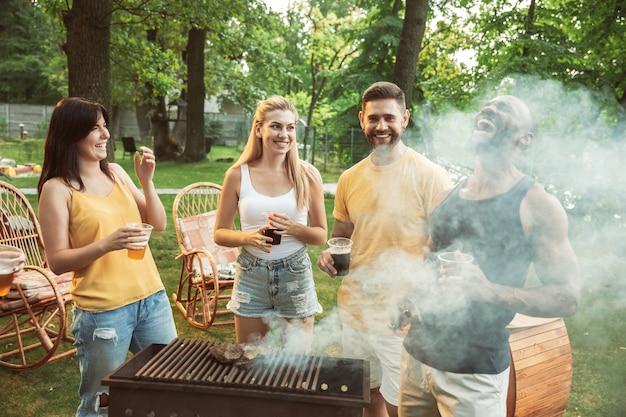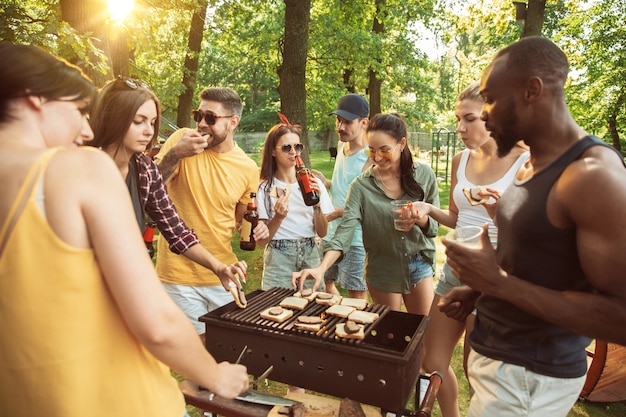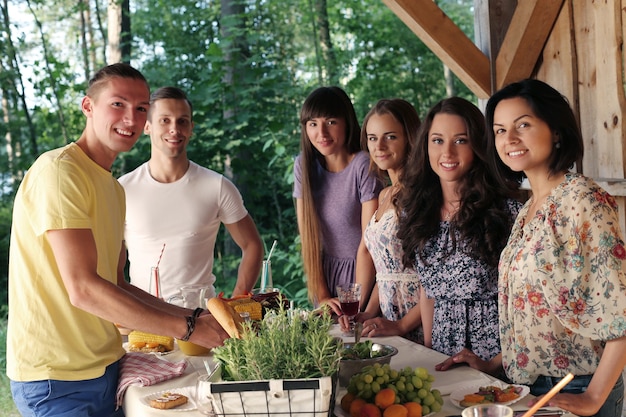Do you need to cover your BBQ in the summer?
Introduction
As summer approaches, many Brits are eager to fire up their barbecues and enjoy outdoor cooking. One question that often arises is whether it’s necessary to cover your BBQ when not in use during the summer months. While opinions may vary, there are several factors to consider when deciding whether or not to cover your BBQ.
The Case for Covering
Protecting your investment: Your barbecue grill represents a significant investment. Whether you have a basic charcoal grill or a state-of-the-art gas model, it’s essential to protect it from the elements to maintain its longevity. A cover can shield your BBQ from rain, UV rays, dust, and other environmental factors that may cause rust, corrosion, or damage.
Pest prevention: Another advantage of covering your BBQ is to prevent pests from making themselves at home. Insects, birds, and small animals may be attracted to the remnants of food left on your grill, especially during warm weather. By covering your BBQ, you minimize the risk of unwanted visitors and potential contamination.
The Argument Against Covering
Quick and easy access: Some BBQ enthusiasts argue against covering their grills, primarily due to convenience. If you frequently use your grill and enjoy spontaneous outdoor cooking sessions, having to remove a cover each time can be bothersome. However, this approach requires diligent cleaning and regular maintenance to keep your BBQ in good condition.
Proper ventilation: Certain types of grills, especially gas models, require adequate ventilation to prevent gas build-up and potential hazards. While covers are typically designed with ventilation in mind, some users may prefer to leave their grills uncovered to ensure better airflow.
Best Practices for BBQ Covers
Choose the right cover: When selecting a BBQ cover, it’s crucial to choose one specifically designed for your grill’s dimensions and type. A well-fitted cover will provide better protection and prevent moisture or debris from seeping in.
Keep it clean and dry: Regularly clean your BBQ cover to prevent the accumulation of dirt, leaves, or other debris that could transfer onto your grill. Additionally, make sure to store the cover in a dry place when not in use to avoid mold or mildew growth.
Did you know? According to a study conducted by Barbecue Industry Association UK, around 90% of barbecues in the UK take place during the summer months!
In Conclusion
Ultimately, the decision to cover your BBQ in the summer depends on personal preference and individual circumstances. If you value protecting your investment, keeping pests at bay, and ensuring your grill remains in top condition, investing in a suitable cover is recommended. However, if convenience and easy access to your grill are your priorities, taking extra care with cleaning and maintenance can also be effective.
Whichever option you choose, remember that regular cleaning, proper storage, and routine maintenance are essential for prolonging the lifespan of your BBQ and ensuring many delicious meals with family and friends.
Should you cover your BBQ in the summer?
When it comes to barbecues, the great British summer can be a bit unpredictable. One minute you’re enjoying glorious sunshine, and the next minute you’re battling showers. This begs the question: should you cover your BBQ in the summer?
The case for covering your BBQ
There are several advantages to covering your BBQ during the summer months. Firstly, a cover can protect your barbecue from the elements, such as rain and UV rays. This is especially important if you have invested in an expensive BBQ that you want to keep in pristine condition.
Additionally, a cover can help to prevent rust and corrosion, which can be caused by exposure to moisture. By keeping your BBQ covered, you can prolong its lifespan and ensure it remains in good working order for years to come.
The case against covering your BBQ
On the other hand, some argue that covering your BBQ in the summer is unnecessary. They believe that barbecues are designed to withstand outdoor conditions and do not require additional protection.
Furthermore, covering your BBQ immediately after use can trap moisture inside, which may lead to mold or mildew growth. It is essential to ensure your BBQ is completely cooled down and dry before covering it to avoid these issues.
“Covering your BBQ during the summer months can help protect it from the unpredictable British weather, but it’s important to strike the right balance to avoid any potential damage.”
What type of BBQ is most popular?
Barbecuing is a beloved activity in the UK, especially during the summer months. Whether it’s a casual gathering with friends or a family celebration, the type of BBQ you choose can greatly enhance the overall experience. In this article, we’ll explore the most popular types of BBQs in the UK and help you decide which one is best for you.
Charcoal Barbecues
Charcoal barbecues are a traditional choice and remain popular among BBQ enthusiasts. They provide a unique smoky flavor that many people enjoy. Charcoal BBQs require charcoal briquettes or lump wood charcoal as fuel, which can take some time to heat up. However, the wait is often worth it for the authentic BBQ taste. They are available in various sizes and styles, from portable kettle grills to large barrel-style BBQs.
Gas Barbecues
Gas barbecues have gained popularity in recent years due to their convenience and ease of use. They use propane or natural gas as fuel, allowing for quick and consistent heat. Gas BBQs are perfect for those who want to spend less time on preparation and more time enjoying their meal. They often come with multiple burners, enabling you to control the temperature across different cooking zones. With minimal cleanup required, gas BBQs are a convenient choice for many.
Electric Barbecues
If you don’t have access to an outdoor space or live in an apartment, electric barbecues are a great alternative. These BBQs are powered by electricity and can be used both indoors and outdoors. They heat up quickly and offer precise temperature control. While they may lack the smoky flavor of charcoal or gas BBQs, their portability and convenience make them a popular choice for those with limited space.
“The type of BBQ you choose can greatly enhance the overall experience.”
Ultimately, the most popular type of BBQ will depend on individual preferences and circumstances. If you enjoy the authentic smoky flavor and don’t mind the extra preparation time, a charcoal BBQ might be the perfect fit. For those who prioritize convenience and quick cooking, a gas BBQ is an excellent choice. If space is a constraint, electric BBQs provide a viable option that can be used both indoors and outdoors.
| Type of BBQ | Pros | Cons |
|---|---|---|
| Charcoal | Authentic smoky flavor | Longer preparation time |
| Gas | Convenient and quick | Lacks smoky flavor |
| Electric | Portable and versatile | No smoky flavor |
In conclusion, the popularity of BBQ types in the UK varies, but it ultimately comes down to personal preference and specific needs. Whether you opt for the traditional smokiness of charcoal, the convenience of gas, or the portability of electric, the most important thing is to enjoy the delicious food and time spent with loved ones.
What Time is Best for a BBQ Party?
Planning a BBQ party can be exciting, but choosing the right time for it can make or break the event. In the UK, where weather is notoriously unpredictable, timing becomes even more crucial. To ensure your BBQ party is a success, take into account the following considerations when deciding on the best time to fire up the grill.
Weather
Given the fickle nature of British weather, it’s crucial to select a time when rain is less likely to dampen your plans. The summer months, particularly June, July, and August, generally have the highest chance of good weather, but keep an eye on the forecast to avoid any surprises. It’s always a good idea to have a backup plan, such as a covered patio or gazebo, in case the weather takes a turn.
Afternoon or Evening?
Choosing between an afternoon or evening BBQ party largely depends on your preferences and the atmosphere you want to create. Afternoon parties are ideal for families with children, as they allow for plenty of daylight and outdoor activities. On the other hand, evening parties create a more relaxed and cozy ambiance, perfect for socializing and enjoying the sunset.
Food Preparation
Consider the time required to prepare your BBQ feast. If you’re planning an extensive menu with marinated meats, slow-cooked ribs, or homemade sauces, you may want to start earlier in the day to allow ample time for preparation and grilling. However, if you’re keeping it simple with burgers, sausages, and kebabs, an evening BBQ party can give you more flexibility during the day.
Timing Tips
- Aim for mid-afternoon: Plan your BBQ party for around 3-4 PM to strike a balance between afternoon enjoyment and dinner time.
- Inform your guests: Let your guests know the start and end times of the party to ensure they arrive on time and are aware of any time constraints.
- Have snacks available: In case the grilling takes longer than expected, it’s always a good idea to have appetizers or finger foods ready to keep your guests satisfied while they wait.
“There’s something magical about gathering around a grill with friends and family, enjoying delicious food and great company. The right timing will enhance this experience, so choose wisely.” – BBQ enthusiast
Ultimately, the best time for a BBQ party in the UK depends on your personal preferences, weather conditions, and the atmosphere you want to create. By considering these factors and following some simple timing tips, you’ll be well on your way to hosting a memorable BBQ party that everyone will enjoy.
How much barbecue do you need for 50 people?
Planning a barbecue party for 50 people requires careful consideration of the amount of food and drinks you’ll need to satisfy everyone’s appetites. Whether you’re hosting a small gathering or a large event, it’s essential to estimate quantities correctly to ensure that everyone leaves your barbecue satisfied and happy.
Calculating meat portions
When it comes to determining how much meat you need, a general rule of thumb is to allocate around 1/2 pound (225 grams) of cooked meat per person. This estimate can vary based on the type of meat and preferences of your guests. For example, if you’re serving mainly beef brisket or ribs, you may want to increase the portion size to 3/4 pound (340 grams) per person as these cuts often have more bone and fat.
Side dishes and accompaniments
Don’t forget to account for side dishes and accompaniments when planning your barbecue. Some popular options include coleslaw, potato salad, corn on the cob, baked beans, and grilled vegetables. A good guideline is to allocate around 4 to 6 ounces (113 to 170 grams) of each side dish per person.
Drinks and desserts
It’s important to provide a variety of drinks to cater to different preferences. Estimate about 1-2 beverages per person, including both alcoholic and non-alcoholic options. As for desserts, plan for approximately one serving per person, whether it’s ice cream, fruit salad, or a selection of cakes.
Tips: It’s better to have slightly more food than not enough, so aim to prepare a bit extra to account for unexpected guests or hearty appetites. Consider any dietary restrictions or preferences of your guests, such as vegetarian or vegan options.
Here’s a summary table to give you a better idea of how much barbecue you might need for 50 people:
| Food/Drink | Quantity per Person | Total Quantity for 50 People |
|---|---|---|
| Meat | 1/2 pound (225 grams) | 25 pounds (11.3 kilograms) |
| Side Dishes | 4-6 ounces (113-170 grams) | 12.5-18.75 pounds (5.7-8.5 kilograms) |
| Drinks | 1-2 beverages | 50-100 drinks |
| Desserts | 1 serving | 50 servings |
Remember, these quantities are estimates and can be adjusted based on your specific menu and guests’ preferences. Happy grilling!
Conclusion
In conclusion, whether or not you should cover your BBQ in the summer depends on personal preference and the specific circumstances. If you have invested in a high-quality BBQ and want to prolong its lifespan, using a cover can be beneficial. However, it is essential to ensure your BBQ is completely cool and dry before covering it, to avoid any moisture-related issues.
| Pros of covering your BBQ | Cons of covering your BBQ |
|---|---|
|
|



